Speakers and Panelists
Carol Ann Boyle
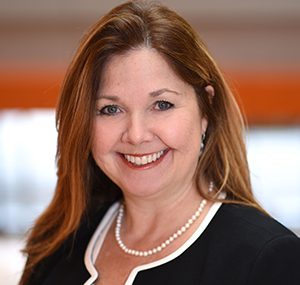
Carol Ann Boyle is the Chief Information Officer at Adelphi University with responsibility for managing academic and administrative systems, mobile strategies, information security, and network and telecommunications infrastructure. She promotes strategic initiatives for instructional technology, including creating a STEAM lab for students and faculty. Active in student-focused committees, she has led various forums such as “Women’s Leadership in IT” to encourage women to seek opportunities and advancement in technology. She earned an MBA at the Adelphi University Robert B. Willumstad School of Business. Her philosophy is summed up in her Twitter handle @AULifeLearner.
Elke-Caroline Aschenauer, PhD
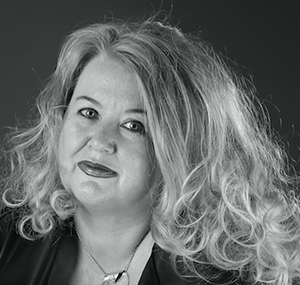
Dr. Elke-Caroline Aschenauer earned her Master in Physics from University of Erlangen, Germany (1989) and her PhD in physics from the Swiss Federal Institute of Technology (ETH) Zürich in 1994, then accepted a personal postdoctoral fellowship from the European Union. In 1997 she joined the Deutsches Elektronen-Synchrotron (DESY) in Hamburg Germany as a postdoc in the HERMES experiment, an international nuclear physics experiment with 250 collaborators from 12 different nations studying the spin structure of the proton. She became staff scientist in 2001 and spent three years as Deputy Spokesperson and Run-Coordinator, and then 3.5 years as the spokesperson of the HERMES experiment. End of 2006, she moved to Jefferson Lab and became the group leader of the Hall D scientific and technical staff and project leader for the Hall D portion of the 12 GeV upgrade project. She joined Brookhaven as a staff scientist in 2009 and received tenure in 2010, became APS fellow in 2012, Senior Scientist in 2015, received a Humboldt research award in 2017 and the BNL Science & Technology Award in 2018. At BNL she is leading the RHIC Medium-Energy Group, which is deeply involved in the operation of the Relativistic Heavy Ion Collider and the analysis of its data. In the last years she has been focusing on developing the science case for the new electron-ion collider and the design of its experimental equipment. Besides co-authoring more than 250 peer-reviewed publications, she has given more than 190 talks at conferences and workshops worldwide.
Justyna Widera-Kalinowska, PhD
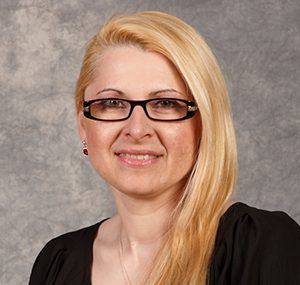 Dr. Justyna Widera-Kalinowska is an Associate Professor at the Chemistry Department of Adelphi University since 2005. She received her MSc from the University of Lodz, Poland in 1995 and her PhD in 2000 from the University of Warsaw, Poland. She did her post-doctoral training at the Institute of Solid State and Materials Research in Dresden, Germany and the Miami University in Oxford, OH, USA. In the period from 2002 until 2005, she worked as a Research Scientist at the Innovative Scientific Solutions Inc. and University of Dayton research Institute, as a contractor of the Wright Patterson Air Force Base. She published several papers in the field of material chemistry focusing on the applications in sensors, photovoltaic and photocatalytic devices. Dr. Widera-Kalinowska is actively promoting science among undergraduate, high school and middle school students, especially promoting underrepresented groups of women, minorities and students from financially disadvantaged families.
Dr. Justyna Widera-Kalinowska is an Associate Professor at the Chemistry Department of Adelphi University since 2005. She received her MSc from the University of Lodz, Poland in 1995 and her PhD in 2000 from the University of Warsaw, Poland. She did her post-doctoral training at the Institute of Solid State and Materials Research in Dresden, Germany and the Miami University in Oxford, OH, USA. In the period from 2002 until 2005, she worked as a Research Scientist at the Innovative Scientific Solutions Inc. and University of Dayton research Institute, as a contractor of the Wright Patterson Air Force Base. She published several papers in the field of material chemistry focusing on the applications in sensors, photovoltaic and photocatalytic devices. Dr. Widera-Kalinowska is actively promoting science among undergraduate, high school and middle school students, especially promoting underrepresented groups of women, minorities and students from financially disadvantaged families.
Dr. Widera-Kalinowska has been a PI or co-PI of major grants funded by the National Science Foundation, Petroleum Foundation, NY Department of Education and the U.S. Department of Energy. Her recent NSF IRES grant helped establishing the collaboration with the University of Warsaw, Poland and allowed for the international research experience for over 20 students. She has been actively involved in the American Chemical Society holding different positions over the years. Currently, she is a Councilor and the Chair of the NY section of the ACS.
Lena Loewenstine
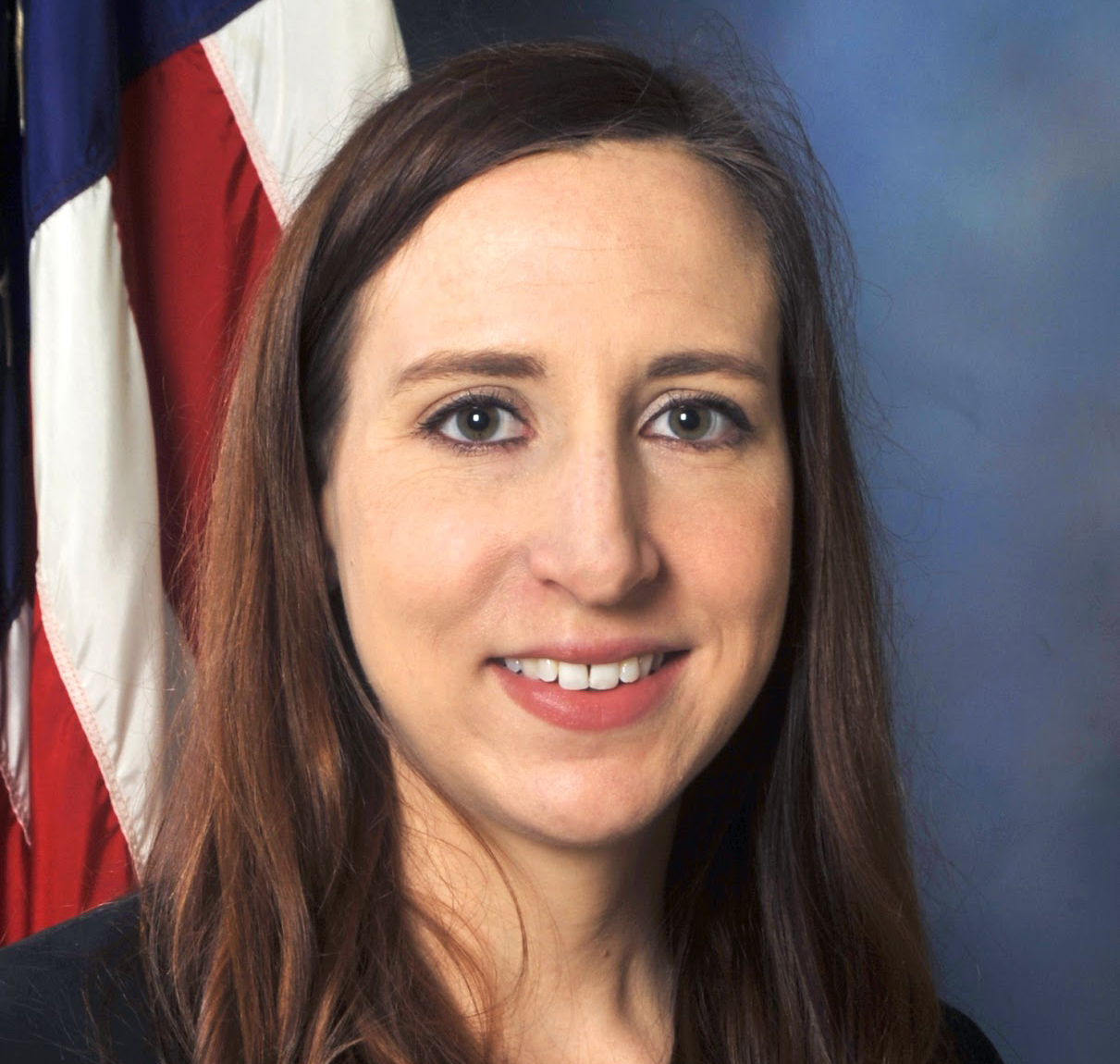 Lena Loewenstine has been performing advanced technical work in support of the US Federal Government for over a decade. She is currently a Computer Science Engineer, providing technical expertise for cyber security investigations. Her daily work includes a wide variety of technical operations, including malware analysis, computer forensics, network analysis, software development, and continuously learning to keep up with the latest cyber security vulnerabilities.
Lena Loewenstine has been performing advanced technical work in support of the US Federal Government for over a decade. She is currently a Computer Science Engineer, providing technical expertise for cyber security investigations. Her daily work includes a wide variety of technical operations, including malware analysis, computer forensics, network analysis, software development, and continuously learning to keep up with the latest cyber security vulnerabilities.
Lena earned her bachelor’s and master’s degrees in Mathematics from the University of Wisconsin at La Crosse and the University of Cincinnati, respectively. She spent her first several years in government service as a Mathematician, learning how to program and reverse engineer while on the job. She then became a Software Developer in a research and development division, developing innovative new tools before moving into her current position. Lena has been a volunteer mentor for the Girls Who Code after-school program for the past four years. She lives in New York with her husband and her cat Hermione.
Shushanna Cherian-Brutus
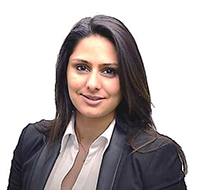
Shushanna Cherian-Brutus has spent 12 years of her career in the aerospace and defense industry where she held increasing levels of responsibility in engineering and management. Presently, Shushanna is a Senior Program Manager and Staff Manager at GE Aviation, NY where she is responsible for managing the overall health and performance of military defense programs, functioning on behalf of the business as the liaison between customers and leading the Spares Organization. In 2016, Shushanna was the Engineering Investigation Lead at GE Aviation, NY, focused on resolving business and customer critical product investigations which required technical leadership and cross-functional team management. Between 2013 and 2016, Shushanna held roles in the Mechanical Engineering department at GE Aviation, NY. She performed design, analysis and led development programs for defense contracting and independent research. During this time, Shushanna also co-invented 4 patents on advanced cooling techniques for contemporary high-power dissipating electronics. Earlier in Shushanna’s career, from 2007 to 2013, she worked as a mechanical designer and consultant at AmpliTech Inc., a radio frequency component design and manufacturing company for Commercial, SATCOM, Space, and Military markets.
Shushanna earned her master’s and bachelor’s degrees in Mechanical Engineering with a minor in Electrical Engineering from Stony Brook University. During her academic career, she had the opportunity to conduct research on the Biofuels Analysis Testing Characterization and Homologation Platform (BATCH) and the Series-hybrid Energy Education Development Platform (SEED) at Stony Brook University. In addition, Shushanna holds a CAD drafting certification, Project Management Professional (PMP) certification and is a recent graduate from the GE RISE Leadership Program.
Jeanna N. Matthews
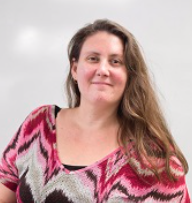
Jeanna N. Matthews is an associate professor of Computer Science at Clarkson University (Potsdam, New York). She is currently a member of the Executive Committee of US-ACM, the U.S. Public Policy Committee of ACM. She is the co-chair of US-ACM’s subcommittee of Algorithmic Transparency and Accountability. She was the chair of the ACM Special Interest Group on Operating Systems (SIGOPS) from 2011 to 2015 and is currently on the ACM Council. She is a 2017-18 Fellow at Data and Society in Manhattan. She has written several popular books including “Running Xen: A Hands-On Guide to the Art of Virtualization” and “Computer Networking: Internet Protocols in Action”. Her research interests include virtualization, cloud computing, computer security, computer networks and operating systems. At Clarkson, she leads several hands-on computing laboratories including the Clarkson Open Source Institute and Clarkson Internet Teaching Laboratory. Students in these labs and in her classes at Clarkson and Cornell have been winners in a number of prestigious computing contests including the 2001, 2002, and 2004 IBM Linux Challenge, the 2005 IBM North American Grid Scholar’s Challenge, the 2005 Unisys Tuxmaster competition, and the 2006 VMware Ultimate Virtual Appliance Challenge. She has worked actively on industrial projects with companies including VMware, Intel, IBM, AMD, HP and Greenplum/EMC. Jeanna received her Ph.D. in Computer Science from the University of California at Berkeley in 1999 and her B.S. in Mathematics and Computer Science from Ohio State University in 1994.
Hannah Meyer
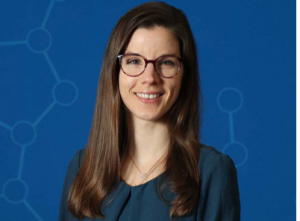 Dr. Hannah Meyer is a Fellow and Principal Investigator at the Simons Center for Quantitative Biology at Cold Spring Harbor Laboratory. Her lab studies how the immune system distinguishes between self and non-self to effectively fight infection and prevent autoimmune diseases.
Dr. Hannah Meyer is a Fellow and Principal Investigator at the Simons Center for Quantitative Biology at Cold Spring Harbor Laboratory. Her lab studies how the immune system distinguishes between self and non-self to effectively fight infection and prevent autoimmune diseases.
Hannah originally trained in molecular biology at Heidelberg University, Germany. After completing her undergraduate thesis in neurobiology, she explored many areas of science including work in a biotech start-up to develop novel ELISA kits. It was not until her master’s project that she discovered what fascinated her most in science: immunology and computational biology. It convinced her to seek out the graduate program at the European Bioinformatics program (EMBL-EBI/University of Cambridge) where she got deeply immersed in computational biology and bioinformatics. Without formal training in statistics or programming, she spent her graduate studies developing computational methods for quantitative genetics. In March 2019, Cold Spring Harbor Laboratory offered her a faculty position as a Cold Spring Harbor Laboratory Fellow directly following her Ph.D. studies. The skills sets she acquired during her training facilitate the diverse and multidisciplinary research program of her lab.
One of her most formative research experiences was the annual, international student competition in synthetic biology (iGEM; hosted at MIT, Boston) which she first took part in as a student (2009) and later as a supervisor (2013). Both times, she and her team set out to explore and introduce new concepts to the synthetic biology community. They ranked second and first in the overall competition (2009/2013 respectively) and were awarded a number of prizes, including a foundational advance prize that recognizes novel solutions to core technical problems.
For further information, please contact:
Adelphi ACM-W Student Chapter
e – acmw@adelphi.edu